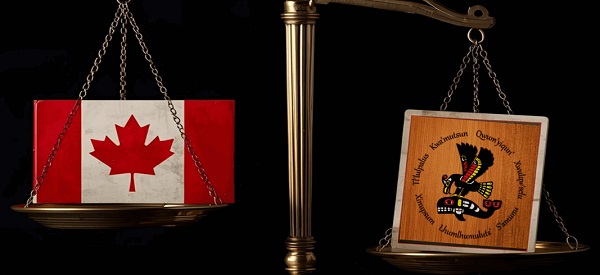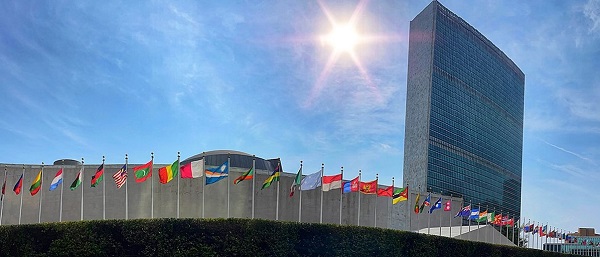Alberta
Alberta. The Best Province in a Nation in Trouble.

Submitted by Red Deer South MLA Jason Stephan
September 1 is Alberta Day. Alberta is a land of freedom and prosperity, welcoming all who desire to work and to serve, seeking happiness for themselves and their families. Alberta joined confederation and became part of Canada on September 1, 1905. Historically, Alberta has led Canada in key measures such as GDP per capita, business investment per worker, private sector employment, CPP contributions, equalization payments, etc. Alberta is the best.

Canada has benefited from Alberta more than Alberta has benefited from Canada. In this graph produced by the Fraser Institute, for its article titled Understanding Alberta’s Outsized Contribution to Confederation, it is estimated that Alberta businesses and workers, between 2017 to 2023, paid more than $244 billion to Ottawa than it received from Ottawa, dwarfing net contributions of the only two other contributing provinces, Ontario and BC, despite, in the case of Ontario, having a much larger population.
The biggest taker during this period was Quebec, receiving more than $327 billion from Ottawa than it paid. Many have written how Quebec and others “game” confederation to increase transfers from producers. Indeed, the current premier of Quebec said that his favorite thing about Canada is equalization.
While Canada has the potential to be the most free and prosperous country in the world, by objective measures it is not, and the flawed structure of “confederation”, and some who seek to exploit it to glut themselves on the labors of others, hold us back and drag us down. When the “redistribution” of wealth displaces the “production” of wealth as a ruling principle, we are in trouble and that is now.
Many are concerned that Trudeau’s Canada is a growing danger and threat to Alberta’s freedom and prosperity. That is true. Alberta is better off without Trudeau’s Canada. Trudeau’s Canada is a fiscal train wreck. Trudeau has smashed through a trillion dollars in debt, accumulating more debt than all Prime Ministers before him combined. This gross negligence, waste and disrespect will be burdens of our children long after they are gone. Canada now pays more in interest on its debt than it collects from the GST.
Prior to Trudeau, in 2014, Canada’s per capita GDP was 92% of the US. What is it now? In 2022, it is 72%, a 20% drop in less than 10 years, and getting worse. We are getting poorer, fast. It should not be this way, it does not need to be this way.
Canadians awake and alive to the truth of Trudeau’s Canada and where it is leading are rightly concerned and alarmed. But what to do? Some are leaving or have left.
Alberta has the highest per capita GDP in Canada, rejecting Trudeau’s woke, socialist values of mediocrity and virtue signaling, producing nothing. Trudeau’s Canada appears to resent Alberta with policies that single out Alberta, seeking to attack, hold back, or drag it down.
Do not count on many politicians to stand up for a “Fair Deal” for Alberta, because if Alberta gets a Fair Deal, then it means less handouts for others!
Let’s provide Albertans with the unbiased truth and facts surrounding “fiscal federalism”. Who is paying what, and who is getting what, directly or indirectly, from Alberta businesses and workers. Albertans should be supplied with the truth about what they are paying for and what Trudeau’s Canada is costing them. In this fall legislature I will be bringing forward a motion to get to these facts, even if some do not like it.
Let’s arm Albertans with more truth, and then trust them to lead, to know what is best. Let’s increase Alberta’s leverage for a Fair Deal. The less Alberta needs Canada, the more leverage Alberta has. There are many things that Alberta can do for Albertans better than Trudeau’s Canada.
Albertans need alternatives to Trudeau’s Canada; let’s prepare, insulate, and protect ourselves from this accelerating trainwreck, which unabated, will crash as sure as night follows day.
We cannot be complacent – less talk and more action.
Alberta is a blessed land of freedom and prosperity. We must be vigilant to keep it that way. Happy Alberta Day!
Alberta
Busting five myths about the Alberta oil sands

Construction of an oil sands SAGD production well pad in northern Alberta. Photo supplied to the Canadian Energy Centre
From the Canadian Energy Centre
The facts about one of Canada’s biggest industries
Alberta’s oil sands sector is one of Canada’s most important industries — and also one of its most misunderstood.
Here are five common myths, and the facts behind them.
Myth: Oil sands emissions are unchecked

Steam generators at a SAGD oil sands production site in northern Alberta. Photo courtesy Cenovus Energy
Reality: Oil sands emissions are strictly regulated and monitored. Producers are making improvements through innovation and efficiency.
The sector’s average emissions per barrel – already on par with the average oil consumed in the United States, according to S&P Global – continue to go down.
The province reports that oil sands emissions per barrel declined by 26 per cent per barrel from 2012 to 2023. At the same time, production increased by 96 per cent.
Analysts with S&P Global call this a “structural change” for the industry where production growth is beginning to rise faster than emissions growth.
The firm continues to anticipate a decrease in total oil sands emissions within the next few years.
The Pathways Alliance — companies representing about 95 per cent of oil sands activity — aims to significantly cut emissions from production through a major carbon capture and storage (CCS) project and other innovations.
Myth: There is no demand for oil sands production

Expanded export capacity at the Trans Mountain Westridge Terminal. Photo courtesy Trans Mountain Corporation
Reality: Demand for Canadian oil – which primarily comes from the oil sands – is strong and rising.
Today, America imports more than 80 per cent more oil from Canada than it did in 2010, according to the U.S. Energy Information Administration (EIA).
New global customers also now have access to Canadian oil thanks to the opening of the Trans Mountain pipeline expansion in 2024.
Exports to countries outside the U.S. increased by 180 per cent since the project went into service, reaching a record 525,000 barrels per day in July 2025, according to the Canada Energy Regulator.
The world’s appetite for oil keeps growing — and it’s not stopping anytime soon.
According to the latest EIA projections, the world will consume about 120 million barrels per day of oil and petroleum liquids in 2050, up from about 104 million barrels per day today.
Myth: Oil sands projects cost too much
Reality: Operating oil sands projects deliver some of the lowest-cost oil in North America, according to Enverus Intelligence Research.
Unlike U.S. shale plays, oil sands production is a long-life, low-decline “manufacturing” process without the treadmill of ongoing investment in new drilling, according to BMO Capital Markets.
Vast oil sands reserves support mining projects with no drilling, and the standard SAGD drilling method involves about 60 per cent fewer wells than the average shale play, BMO says.
After initial investment, Enverus says oil sands projects typically break even at less than US$50 per barrel WTI.
Myth: Indigenous communities don’t support the oil sands

Chief Greg Desjarlais of Frog Lake First Nation signs an agreement in September 2022 whereby 23 First Nations and Métis communities in Alberta acquired an 11.57 per cent ownership interest in seven Enbridge-operated oil sands pipelines for approximately $1 billion. Photo courtesy Enbridge
Reality: Indigenous communities play an important role in the oil sands sector through community agreements, business contracts and, increasingly, project equity ownership.
Oil sands producers spent an average of $1.8 billion per year with 180 Indigenous-affiliated vendors between 2021 and 2023, according to the Canadian Association of Petroleum Producers.
Indigenous communities are now owners of key projects that support the oil sands, including Suncor Energy’s East Tank Farm (49 per cent owned by two communities); the Northern Courier pipeline system (14 per cent owned by eight communities); and the Athabasca Trunkline, seven operating Enbridge oil sands pipelines (~12 per cent owned by 23 communities).
These partnerships strengthen Indigenous communities with long-term revenue, helping build economic reconciliation.
Myth: Oil sands development only benefits people in Alberta
Reality: Oil sands development benefits Canadians across the country through reliable energy supply, jobs, taxes and government revenues that help pay for services like roads, schools and hospitals.
The sector has contributed approximately $1 trillion to the Canadian economy over the past 25 years, according to analysis by the Macdonald-Laurier Institute (MLI).
That reflects total direct spending — including capital investment, operating costs, taxes and royalties — not profits or dividends for shareholders.
More than 2,300 companies outside of Alberta have had direct business with the oilsands, including over 1,300 in Ontario and almost 600 in Quebec, MLI said.
Energy products are by far Canada’s largest export, representing $196 billion, or about one-quarter of Canada’s total trade in 2024, according to Statistics Canada.
Led by the oil sands, Canada’s energy sector directly or indirectly employs more than 445,000 people across the country, according to Natural Resources Canada.
Alberta
Diploma Exams Affected: No school Monday as ATA rejects offer of enhanced mediation

Premier Danielle Smith, Minister of Finance Nate Horner, and Minister of Education Demetrios Nicolaides issued the following statement.
“Yesterday, the Provincial Bargaining and Compensation Office wrote to the Alberta Teachers’ Association (ATA) and formally requested an agreement to enter an enhanced mediation process.
“This process would have ensured that students returned to the classrooms on Monday, and that teachers returned to work.
“Negotiating would have continued with the ATA, Teachers’ Employer Bargaining Association (TEBA) and a third-party mediator to propose a recommended agreement.
“We are very disappointed that the Alberta Teachers’ Association refused this offer. Teachers and students should also be disappointed.
“PBCO made this offer to the ATA because the union has not made a reasonable offer and this strike is impacting students. Alberta’s government is trying to put kids first and bring an end to this strike.
“The offer of enhanced mediation provided a clear path to ending it.
“We want the same things as the ATA: More teachers. More pay for teachers. More educational assistants. And more classrooms.
“This strike has gone on too long and we are extremely concerned about the impact it is having on students.
“We are willing to consider further options to ensure that our next generation gets the world-class education they deserve. After about three weeks, a strike of this nature would reach the threshold of causing irreparable harm to our students’ education.
“The ATA needs to do what is right for its members, and for all Alberta students.
“If it refuses to do so, we will consider further options to bring this strike to an end.”
Diploma exam update
November diploma exams will be optional for students.
With instructional time in schools disrupted due to the teacher strike, the November 2025 diploma exams will now be optional for students. Students who wish to write a diploma exam may request to do so, and their school boards will accommodate the request.
The optional diploma exams apply to all schools provincewide. These exams will still take place on the currently scheduled dates.
Students who choose not to write the November diploma exams can still complete their courses and graduate on time. Their final grade will be based entirely on the school-awarded mark provided by their teacher.
Choosing not to write the November diploma exams will not affect a student’s ability to apply to, be accepted by, or attend post-secondary institutions after graduation.
No changes have been made to the January and June diplomas and provincial achievement tests.
Quick facts
- Students are automatically exempted from writing the November diploma exams but can request to write them.
- School boards must allow the student to write the diploma exam if requested.
-

 Automotive2 days ago
Automotive2 days ago$15 Billion, Zero Assurances: Stellantis Abandons Brampton as Trudeau-Era Green Deal Collapses
-

 Red Deer1 day ago
Red Deer1 day agoYour last minute election prep: Common Sense Red Deer talks to the candidates
-

 Business1 day ago
Business1 day agoJudges are Remaking Constitutional Law, Not Applying it – and Canadians’ Property Rights are Part of the Collateral Damage
-

 Business2 days ago
Business2 days agoFord’s Whisky War
-

 Business1 day ago
Business1 day agoTrump Blocks UN’s Back Door Carbon Tax
-

 Media23 hours ago
Media23 hours agoCanada’s top Parliamentary reporters easily manipulated by the PMO’s “anonymous sources”
-

 Business1 day ago
Business1 day agoTrump Admin Blows Up UN ‘Global Green New Scam’ Tax Push, Forcing Pullback
-

 Focal Points2 days ago
Focal Points2 days agoTrump Walks Back His Tomahawk Tease from Zelensky




